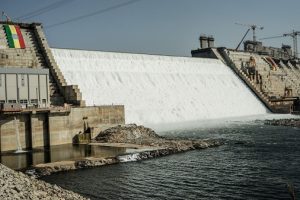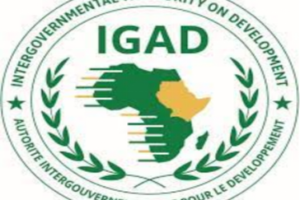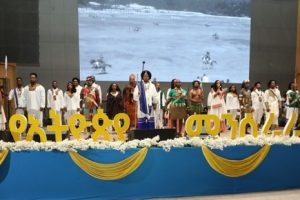BY FITSUM GETACHEW
Part One
One of the most significant days in Ethiopian history is definitely the day Ethiopia concluded with victory the Adwa campaign. The date is March 2, 1896. Adwa has since been celebrated as a holiday in the Ethiopian calendar. Historians have reported that Adwa has cost Ethiopia immense resources not only in terms of human costs which were significant, but also the toil, anxiety and suffering of all those who were involved in the campaign, both directly and indirectly. The preparation was enormous; the costs for the preparation were extended to the limits of the capacity of the nation. We have read in our history books the entire nation was submerged with the efforts of the campaign. Practically every aspect of the life of the people was affected. In the months preceding the battle there was no other agenda in the country except the preparation.
Naturally, this must have brought about a huge psychological and emotional stress on Ethiopians while taking pride in being part of this campaign. In the psyche of Ethiopians, nothing is more important than to battle for one’s dignity and pride, especially when it involves the very survival of the nation. The fact that the enemy may be better armed or better trained could not be a barrier to face it out front. The righteousness of the cause overwhelms any such doubts or fears. Faith in fighting and dying for the right cause had its huge psychological impulse and it was also the belief of people the Creator would be on their side. This was conveyed also by the leaders.
But it must be stressed that not enough has been told or narrated about all the background to this huge victory nor has there been complete record of the post Adwa years. What is even more embarrassing is the way we have dealt with Adwa in our educational curriculum! For years Adwa has been marked just as one holiday risking to undermine its historical significance. Little was done to celebrate it the whole year; little has been done to inculcate in the minds of the current generation owing to the mismanaged educational system that was for years more politically motivated and oriented than considering the events from the historical perspective. This has led to some form of misrepresentation of the facts and we could call it sad.
There may have been written some books on the event from various points of view and we know that there have been multiple chronicles of the battle written by those who were part of the campaign. Those who managed to survive it have tried to tell the tale, particularly the Europeans. Italians treat the history of Adwa as part of their history and have tried to report accounts of the campaign, naturally from their own perspective. But we must inquire, ‘where are the counterparts from our side?!
History tells us that in those years, Italians were late comers in what was then called the ‘scramble for Africa’. What they tried to do was colonize the only African country that was free. They must have thought it could be easy ride. Imposing their dominion and will on the sovereign people of Ethiopia would succeed without too much cost, they must have reckoned. Evidently, they did not know about the fierce spirit of independence of Ethiopians. They did not know that Ethiopians had repulsed so many invasions and attacks earlier; and that they would never succumb to foreign rule.
The Italians were not informed about the spirit of dignity and pride that characterized Ethiopians. They obviously miscalculated undermining the resolve and resistance of the people. They did not do their homework properly or they would not be beaten by an army that was hardly prepared to face a well-trained and well-armed army. Many who reported on the battle dared to use the comparison as between ‘amateurs versus professionals’; but the difference was the motive behind the conflict. The Italians were probably engaged in an adventure while for Ethiopians it was a matter of life or death!
The result was unexpected and a huge set up as the reports of those days tell us. The would-be colonizers were defeated and humiliated. They experienced the first defeat of a European power by an African army. The history of the victory of Adwa has hence been reported and put in history books as ‘the first victory of an African country on a European power’. No one had imagined it would ever happen. It was time when Africans were considered as backward people, barbarians, incapable of defending themselves; and that any army from Europe would very easily subdue them. Many of the conquests that had preceded this event were witness to relatively easy conquests carried out on the Dark Continent.
However, Ethiopians were then led by an emperor called Menelik who through his enlightened leadership managed to harness and mobilize all the resources of the country and take them to the battlefield to successfully defend their sovereignty and territorial integrity. European historians have testified to the effective leadership of Menelik and his strategic approach while confronting the invaders when all diplomatic efforts failed.
Adwa showed to the world that if a country was united under one leadership, it would never fall prey to alien invaders. Despite the high level of poverty or scarcity of resources, if a country has resolved to defend its integrity and freedom, no one would manage to subdue it. That is what actually happened at Adwa.
However, what happened at Adwa has not been told thoroughly. Adwa should not be one single event limited to a day. It is clearly more than that. The preparations for the battle have not been recorded nor written to a sufficient level. Our historians will have the daunting task of carrying out every research necessary and possible, find out every trace of those who were witnesses or heirs of witnesses who actually were a part of the campaign in one way or another and record their souvenirs, their memories and their adventures. We do not have recorded vivid testimonials of those who took part in the pre and post Adwa events. This is a huge gap we need to fill.
History would be best told from the horse’s mouth and if not, from documentary evidence that refers to the preparation for the battle and the post battle scenario. Several questions need to be addressing in documenting all those episodes. Who was in charge of which part of the preparation would be vital to know. What systems were used to stimulate the campaigners to travel all that distance on foot for months and reach fit enough and morally prepared to confront the enemy?
Who were those who were indoctrinating the forces to face the enemy intact without feeling any physical or moral fatigue? Who was in charge of the timely availing of provisions to all those thousands of people engaged in the campaign? And who were those who took care of the sick, who happened to feel unhealthy during the long and tiring journey? Remember people had to travel on foot or at best on animal backs on rugged land, deprived of infrastructure!
There were then the diplomatic battles that preceded the actual physical hostilities and in what way did we engage in the process? There are relatively more extended accounts on these developments as there are multiple written records. But what actually lacks in the account of the battle is the details on the pre and post Adwa events. We have scant reports of our strengths and weaknesses. Besides the political background, there were also the military preparations and what arms we needed or were ready to arm our soldiers. In what way did the emperor and his subordinates who had under them thousands of faithful followers and fighters get along in the preparations for the final phase of the battle? How was the hierarchy kept and the chain of command observed? All these details must be susceptible of filling books if we engage our scholars to do it. One wonders if there the will and resources to achieve these results?
Some people say history begins to be well recorded only after two hundred years of that particular event! But even so, Adwa’s significance comes out prominently to demand more urgency because of the magnitude of its lasting implications over the entire black race and subsequently the influence on the pan African movement. The sum total of all these sequences of stories would deserve particular attention and each one of them would qualify to be a book or a film.
The Ethiopian Herald February 11/2021




